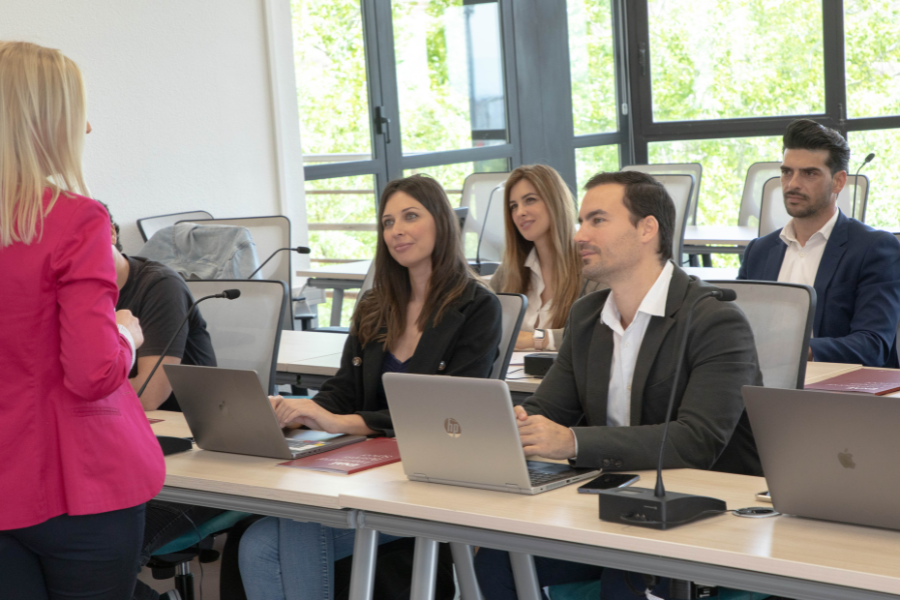 Blog
BlogAgriculture: the Region of Murcia's strategic focus at world level
Agri-food sector, an essential and solid element
The economic crisis, aggravated by the pandemic and the global food crisis that began in 2022 due to rapidly rising prices and shortage of supplies, has put the national primary sector in value. Although it is the area that has the least weight in GDP, it has a transcendental influence on the Spanish economy. Thus, agriculture and the primary sector, in general, have become strategic and this has been demonstrated.
One could talk about how in the Neolithic, 10,000 years ago, man settled in a territory and changed his nomadic and hunting life for a life settled in one place and agricultural. What is certain is that it was the beginning of an activity, well known as primary, which nourishes the main need of the living being.
In a changing world, society opted for activities that today we would call higher value-added. What a error! And this has been amply demonstrated in recent years when the worst omens showed humanity completely subdued by a virus of which little was known.
Theories aside, the fact is that agriculture has proved to be an essential and solid element. It is no longer survival agriculture, nor the intensive farming that has followed technological advances. We are now witnessing a sustainable agriculture that maintains a balance between the necessary production to supply markets and the physical space on which it is based.
In terms of numbers, this sector produced over 35.19 billion euros in 2020, a figure never reached since records have been kept. Employment was also on a positive path. The sector closed the year with 1.1 million people affiliated to Social Security, 0.6% more than a year earlier. The agri-food industry as a whole employs over 2.3 million workers, which represents 12% of the active population.
Advantages and disadvantages of the primary sector
One problem that traditionally affects this activity is the ageing of its workforce. However, this has less of an impact in Spain than in other EU countries. Thus, while in Spain 34% of workers linked to the countryside are over 50 years of age, in the EU as a whole this percentage is close to 40%.
On the other hand, the feminisation of work is lower in Spain (28%) than in the EU (37%), which is why public administrations have been developing campaigns to incorporate women into agricultural work at the head of farms, as is the case with young people in rural areas.

In this sense, agricultural education such as ENAE's postgraduate courses in Agribusiness Management are an excellent tool for rural development, both in terms of optimising resources and increasing efficiency and obtaining higher yields in agricultural and livestock farming.
The worst moments of the pandemic, experienced during the first state of alarm and confinement, brought back the value of agriculture to the collective memory. Apart from economic figures, supplying the markets when practically all activities were reduced to zero revealed the importance of the sector. And its workers showed themselves to be more than essential professionals in a country in a European context that was cloistered by the health crisis.
Not only was this important in Spain, but the professionalism and production capacity of farmers and the logistics chain allowed exports to increase by more than 2% to supply food to other parts of the world. Foreign sales of Spanish agriculture reached a historic volume of almost 55,000 million euros. In other words, one out of every five euros of Spanish exports came from the agricultural sector, a record figure.
The productivity of Spanish agriculture is approximately 40% higher than the EU average. Moreover, labour costs per unit of output are 30% lower than in neighbouring countries, which makes Spanish agriculture significantly more competitive not only in comparison with its European neighbours, but also in relation to other economic sectors.

By sub-sectors, the Spanish primary sector is the European leader in the production of pork, olive oil, oranges, lemons and mandarins. Furthermore, it represents 20% of the total production of fresh vegetables in the EU, making Spain the country with the second highest rate of cultivation of these foods, behind only Italy.
In addition to the continuous education of Spanish farmers, business investment has continued to grow both in machinery and in research and development, a key aspect in Spain's position as an agricultural leader, surpassed by very few non-EU countries.
A large part of R&D efforts are focused on reducing the use of water resources and phytosanitary products, and even on converting traditional crops to organic production. So much so that 10% of the cultivated land in Spain is already organically farmed, exceeding 2.4 million hectares. And a similar phenomenon is occurring in livestock meat. With regard to waste, barely 0.5% is considered hazardous.
Challenges for agriculture: water resources, digitalisation and generational renewal
The great challenge for the agricultural sector is posed by the lack of water resources . Traditionally, rainfall is lower than in other European countries, an issue that has worsened in recent years as a result of the effects of climate change. The Spanish countryside needs more than 15,000 cubic hectometres per year for irrigation. This amount has remained constant in recent years mainly due to the commitment to drip irrigation, which already accounts for over 40%, while gravity irrigation has been reduced to around 30% and the rest by sprinkling. Southeast Spain is a world example in the reconversion of irrigation systems, both in terms of the investments made and the type of crops grown.
Cereals, legumes, fodder crops, rice and maize are those that require most water, while fruit and vegetable crops, more typical of this area of the Mediterranean, have reduced water consumption to a minimum and optimised the use of water resources by means of drip irrigation, which allows higher yields while saving water, fertilisers and energy.
At the same time, it has shown how desalinated water is a complement to the scarcity of other resources, and the same is true of reclaimed water, which is becoming fundamental in the water cycle and is a model of circular economy. In this sense, the Region of Murcia is a pioneer in the integrated management of different water resources, including reclaimed and desalinated water. Therefore, agricultural education on water issues is essential for agricultural practices in these areas.
Specialised agricultural education for agricultural professionals
ENAE Business School has specialised agricultural education courses aimed at preparing managers and professionals to become environmentally responsible managers, combining sustainability and efficiency. To this end, it offers the Master's Degree in Agribusiness Management, which provides an international vision and projection on agriculture and the agri-food industry to optimise business growth in a competitive environment.

Education in Agribusiness Management enables professionals to promote innovation in the primary sector and optimise available resources.
Without a doubt, the students of these postgraduate courses are essential for the development and evolution of agricultural production, knowing the natural resources available and optimising them to the maximum.
In conclusion, as we have mentioned during this article, the agri-food sector is a strategic focus for both the national and international economy, in which ENAE has special knowledge given its proximity to a leading sector in the Region of Murcia.













